|
|
||
|
Pro Tools
FILMFESTIVALS | 24/7 world wide coverageWelcome ! Enjoy the best of both worlds: Film & Festival News, exploring the best of the film festivals community. Launched in 1995, relentlessly connecting films to festivals, documenting and promoting festivals worldwide. We are sorry for this ongoing disruption. We are working on it. Please Do Not Publish until this message disappears. For collaboration, editorial contributions, or publicity, please send us an email here. User login |
Vanessa McMahonVanessa is a novel writer, screenwriter, rep and a film producer. She shares her discoveries and film surprises. :-)
 Interview with Filmmakers Christopher Knoblock and Dana White for "In the Orchard" (2018)
Director Christopher Knoblock's breakthrough first feature is an honest heartrending tale about survival in the midst of life's many physical and psychological battles. Charlotte Winston (played by Dana White) loses her husband and child in a tragic car accident. She is left to take care of the many acres of their California orchard alone. The loss is so great it seems she will not survive; until she meets Marine veteran Nick (Jonas Ball) hiding out in her shed. Nick has PTSD and she has an all consuming grief. Together they form an unlikely friendship. Actress Dana White wrote, produced, edited and stars in the film. It has won the Jury Award for Best American Independent Feature at the 21st Sonoma International Film Festival. It went on to screen at the Maryland International Film Festival and Julien Dubuque International Film Festival.
I interviewed husband & Wife Team CHRISTOPHER KNOBLOCK (Director) & DANA WHITE (Writer/Lead Actor/Producer) for their feature film, “In the Orchard.” Here is what they had to say:
Was the story based on real events? CK: No, not directly. We’ve both done our share of research on the subject of the effects of trauma and grief on veterans and civilians, but, speaking for myself, there haven’t really been any extraordinary personal tragedies other than family members dying of natural causes that I could draw from. The grief experienced by our two main characters is really in a different class entirely. These types of traumas often leave permanent scars on their victims, which they often struggle with for the rest of their lives. We wanted to tell a story from their point of view. DW: The story is complete fiction but some of the inspiration of the script came from my love of rescuing cats. There is a unique and somewhat scary dynamic when you rescue a wild animal. Those of us who rescue animals have a deep need to save. But there needs to be trust between you and a wild animal. This trust is what develops in Nick and Charlotte. Charlotte has that need to save especially after losing her husband and child. I was interested in exploring that. I had also seen a piece on CNN about a Whale that lost her baby. They said that the grief that this poor mother whale went through was devastating to watch as she would cry and moan all the time. I was haunted by this story. It felt so universal to me. I couldn't’ stop thinking about the whale. So that’s when I knew that it was relevant and it became one of the inspirations for the story.
You and your wife are a team in this. What was it like to work together? DW: You know Chris and I have been together a long time and though it can be hard because when you’re as close as we are, the creative partnership can reflect your relationship in many ways. But it is for us such a great experience. Our creative work is what drives us and in many ways probably what attracts us to one another. Chris is so talented and insightful and, over the years, I’ve learned to trust his instincts on things. We don’t always agree but more often than not when we disagree we come to realize that by hashing it out, we end up making something much better by incorporating both of our ideas and strengths. We both see things that the other doesn’t but it’s taken time to trust each other this way. We make each other better, I’d say. CK: Most definitely. But it almost came to murder several times. Noooo, actually we work really well together. At times she sees things that I don’t, and vice-versa. Our sensibilities in some ways are different, but yeah, we definitely complement each other. I feel that dichotomy is a real advantage, as we both bring different strengths to the table. I love that often in her screenplays the film will quietly veer off in unexpected directions, and from writing it she sees things at times between the lines that I don’t. But over the years we’ve definitely had to work out the kinks. We’re two pretty opinionated people. After a while we learned that we needed to let the other fully follow their impulses, their “artistic vision” to use a twenty-Five cent phrase, for a given scene or sequence. We found that you can’t do everything by committee.
Was it difficult or a catharsis to tell such a hard story about grief and loss? CK: It was a challenge in the respect that I felt we would not be honoring the material and the subject if we walked quickly through any of it. So, extensive research and speaking with both civilians and veterans suffering from PTSD was really important. Also I arranged for Dana and Jonas, our Charlotte and Nick to live at the house on the farm both before and during filming. As the film progresses the two characters become so connected to the farm and to each other that they begin to seal themselves off from the world. I wanted them to spend as much time together as possible on location. The owner of the farm gave us full access to the entire facility. At the end of the day the crew would all take off and the three of us would be left alone there. I would rehearse with them for a while then leave them to spend time together to rehearse and improvise on their own. DW: I’d of course sleep with my husband. CK: (laughs) No, it wasn’t going to get that intense. But I feel it payed off, as it grounded them so much to the Orchard itself and to one another. The farm was so tranquil and beautiful that by the time we wrapped none of us ever wanted to leave. DW: It was a hard story to tell for me both in the writing and in the performance and then of course in the editing as well. I wrote the film, played Charlotte and then edited the film so in every one of those aspects of the film different things were required of me. In the writing phase, I had to get inside the heads of each character you know....I mean that’s how I write. I immerse myself in each character that I write until I know them so well that they just start jumping off of the page for me. Its like my characters start guiding me as the writer. I end up identifying with them very intensely. Since Nick and Charlotte are both going through such extreme trauma, I had to embody that a bit in order to truly write from their points of view. Writing is all about point of view so I found myself very lost in them. Once I got to playing Charlotte, I had to purely focus on Charlotte’s Point of view and not the other characters which was hard but necessary. I’ve been acting a very long time and I don’t think I’ve ever gotten so lost in a character before. Maybe because I wrote her, I don’t know but it was a very intense experience. Like Chris said, the three of us all lived together during the shoot and got completely immersed in the creative process together. I hope Chris and I can always make movies this way. It was so intense that it took me a while to let go of the world that we had created. I remember the day I got back home from the shoot. I was in my Trader Joe's and I was just standing there feeling so disoriented. It was like I didn’t recognize my real life. I wanted to go back to Charlotte and Nick’s world. Eventually I shook it off but I had to jump right into the edit which was a very different process. As an editor, I have to have an objective perspective and distance so Nick and Charlotte became characters to me at that point in the process. But all the deep emotional connection was still in me which helped me make editing decisions that were in line with the overall vision and tone that Chris and I had in mind.
Did you have any moments while filming that were especially challenging or surprisingly easy? CK: Considering this was our first feature and done on a micro budget pretty much everything was a challenge, and before shooting began nothing at all came easy, but in the end we had no real disasters. The plumbing in the farm house went down on multiple occasions, but nothing stopped shooting from going on. It was advised to us early on that with micro-budget features that you should double your pre-production period, because you will be doing the job of 4 or 5 people. So we started months before, and we needed every hour of those days to be ready. We had a measly 16 days to shoot the feature, and our incredible crew delivered from day one till we wrapped. A great and talented group of people, couldn’t have been happier with them. DW: For me as Charlotte, the grave scene was hard. Very hard. And the scene where Nick leaves. It was hard to keep myself together on that one. It was a later scene in the shoot and it was as if Jonas and I were saying goodbye to the characters and the experience which had been so rich. I felt like I was mourning our process and experience together. Is it difficult to produce an indie film today with the market saturation? CK: We’ve had to filter that all out. Yeah, the market may be filled with the arrival of digital gear and post (thank God for us), but the focus for us was always on trying to make a great film. The idea being, if we like it, maybe other people will too.
How did you find the orchard you filmed in? DW: A dear friend of ours owns an orchard so we actually wrote the film around his orchard. This was great because I wrote the script with that location in mind. No big surprises for us when we did our scout.
It's your first feature and you're already winning festival awards. How does it feel? And will you continue to make features? CK: It feels really rewarding. We’ve worked ourselves to death on this project. I learned A LOT making this first feature. Will we keep making feature films? You bet. DW: It feels tremendous. Chris and I taught ourselves everything from the ground up. Years ago, Chris and I were in a Pasadena coffee shop. We had no money so we had to split a coffee from the change we found in our car. It was at that cafe that we decided to make our own films. We still go back to that coffee shop sometimes and sit sharing one coffee and take stock in how far we’ve come. So we took out loans and bought a bunch of equipment...a camera....an editing system. We learned everything on our own. So winning Sonoma feels very sweet to both of us. We will keep making feature films until we can’t. It’s such a part of who we are. We’re kind of film nerds actually. Our idea of a perfect night is renting a great film and hanging on the couch with my mom and our cats and watching a film. It doesn’t get better than that.
How have audiences reacted to the film? CK: It’s been exciting to see how people have responded to it. The film is “heavy”, it’s a difficult subject matter, extreme trauma and grief. Though there definitely are elements of danger for the characters in the film as the story progresses, I felt we couldn’t shy away from the gravity of grief and trauma in order to make it more entertaining or more comfortable for the audience. DW: We’re not afraid of challenging our audience to feel and think and experience. CK: It’s risky, but we found it best to lean even farther into our fears over it. These are two damaged people operating out of a lot of fear. Charlotte and Nick don’t always make heroic, perfect choices. At times we make a point to leave interpretations as to the characters motives open to the viewer. In other words, at times we like to let the audience come up with their own conclusions. DW: We also made a lot of creative decisions with regards to the style and tone of the film so that it would have the most impact on our audience emotionally and intellectually. CK: Yeah, for instance, we wanted the audience to quietly settle into the film while watching it. The pace is slow, deliberate. It’s a quiet movie. DW: We wanted to have an organic tone in the visual and sound of the film. Particularly regarding the audience’s experience of the orchard. We talked alot about the the orchard being another character in the film. CK: It’s a Garden of Eden for Charlotte and Nick. I wanted a rich, lush filmic palette, and a look somewhere between super 16 and 35mm film. Working with our DP Noah Pankow, we decided on using vintage 1970’s Panavision primes and some Panavision swing tilt lenses on an Arri Alexa. They were a gorgeous fit for the intended tone. DW: WIth regards to the sounds in the orchard, we worked with our composer Lauren Buchter to create a score that reflected the orchard’s sounds so that at times you don’t know if you’re hearing natural elements or music. Our goal was to have the sound of the film permeate people in a very deep way. To pull them into the world that we had created. CK: The audience members who allow themselves to go on the ride with us say they become very affected by the film, some telling us they can’t stop thinking about it. One man said he was thrown from his sleep in his bed at 3AM from thoughts of the movie. The film has particularly touched people who’ve lived through traumas. That’s been the most rewarding thing for us, that it’s meant something for them. DW: I mean as a filmmaker, as an artist, it really doesn’t get better than that. That’s why we do what we do.
You attended the Sonoma Film Fest. How was that experience? CK: The festival rocks. Kevin McNeely runs an amazing festival, the crowds there loved both the lineup and the vibe that he, Steve Shor, Ginny and his excellent staff created. I’d urge any filmmaker out there to try to get into it. They put the filmmakers up in people’s homes. Our hosts Gary and Claudia were the best. The town and area are stunning. Stunning. And for wine and food lovers it’s a paradise. There’s really nothing bad to say about it. It’s a festival that’s gaining a better and better reputation. I can’t wait to go to it next year, whether with a film of ours or not.
What will you be working on next? CK: Right now we’re in the financing stages for another feature that Dana has written, The Red Suitcase. Several names are attached. It’s a mother / daughter road movie. We’re excited to hopefully get that one going soon. DW: Its a story that I wrote based on my mom’s story. It’s fictitious in most respects but it’s based on her. She’s an amazing woman with a story that needed to be told. The Red Suitcase is about a 70 year old woman, Ruth, who has to start all over and reinvent herself late in life after some very difficult circumstances. Her daughter, Liz, decides to move her across the country and the two embark on a cross country road trip. I love stories about older people, especially women. I’m not as much into coming of age stories. Those are well and good but the stories of older people are the stories that I really want to see on film. CK: A coming of old age story. DW: They are so rich and full of poeticism and beauty and pain and wisdom. I can’t get enough of those kinds of stories. As soon as we get the money we’ll be off and running and shooting again! .
Interview by Vanessa McMahon
16.06.2018 | Vanessa McMahon's blog Cat. : Interview with Filmmakers Christopher Knoblock and Dana White for Interviews PEOPLE
|
LinksThe Bulletin Board > The Bulletin Board Blog Following News Interview with EFM (Berlin) Director
Interview with IFTA Chairman (AFM)
Interview with Cannes Marche du Film Director
Filmfestivals.com dailies live coverage from > Live from India
Useful links for the indies: > Big files transfer
+ SUBSCRIBE to the weekly Newsletter DealsUser imagesAbout Vanessa McMahonThe EditorUser contributions |



















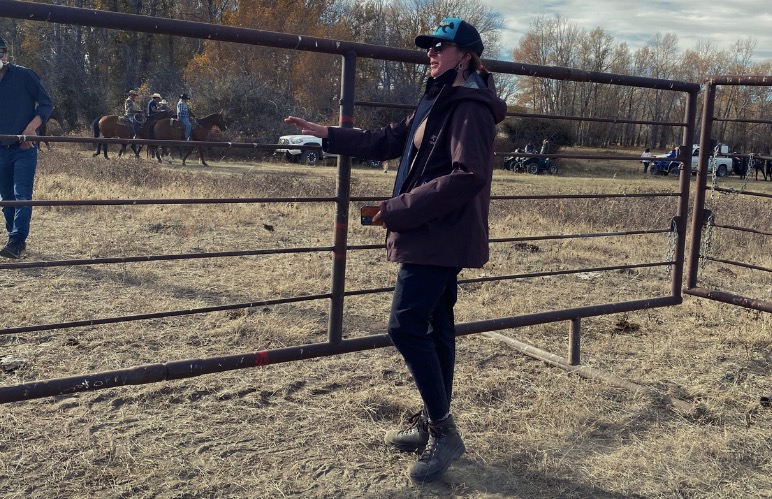
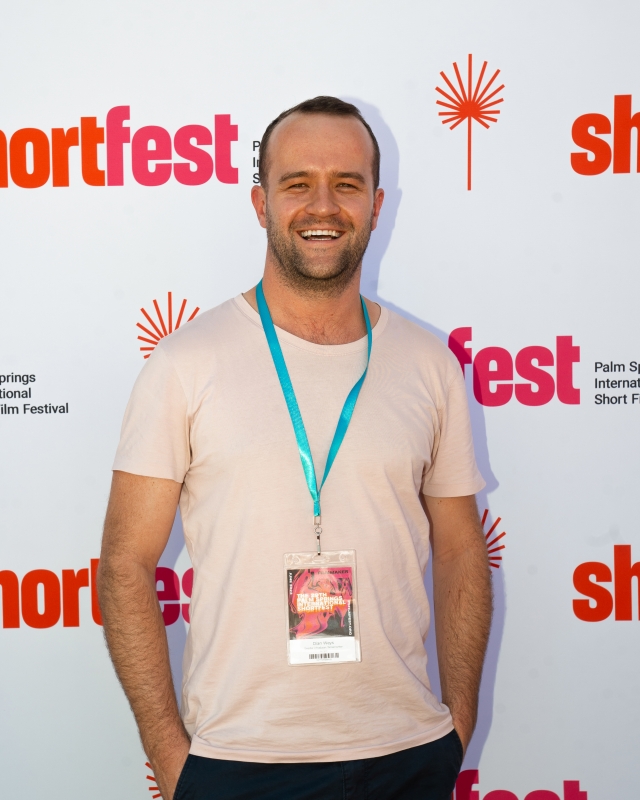
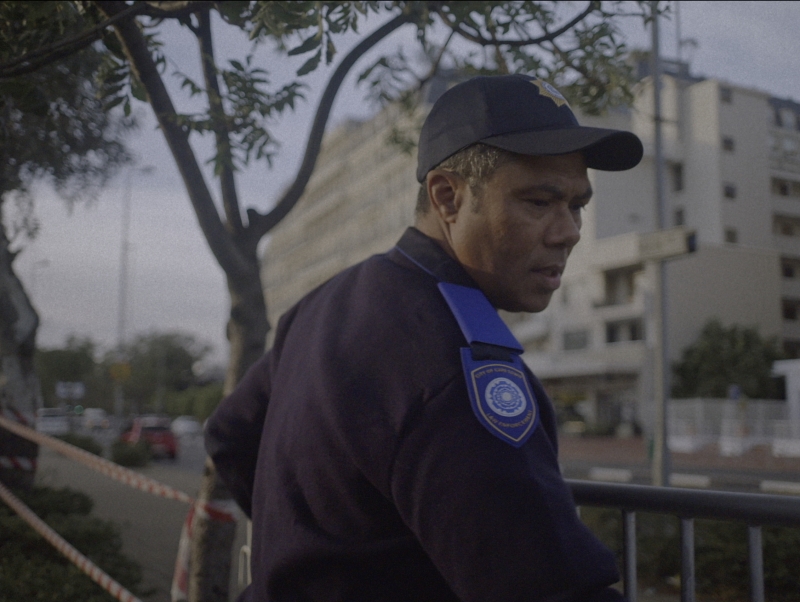
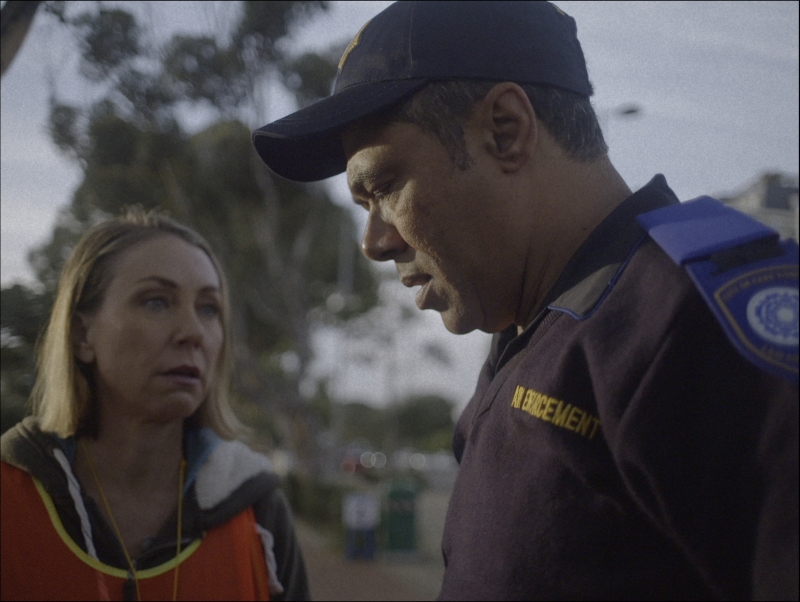
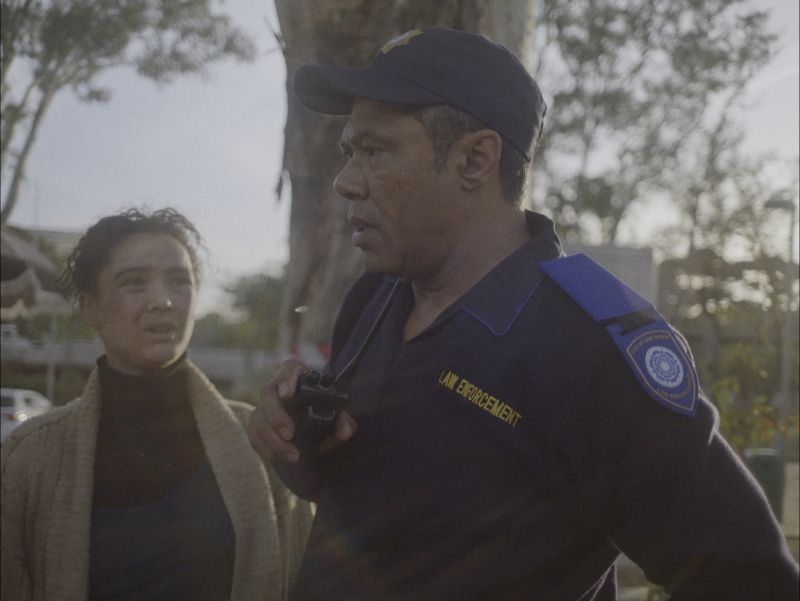
.jpg)



